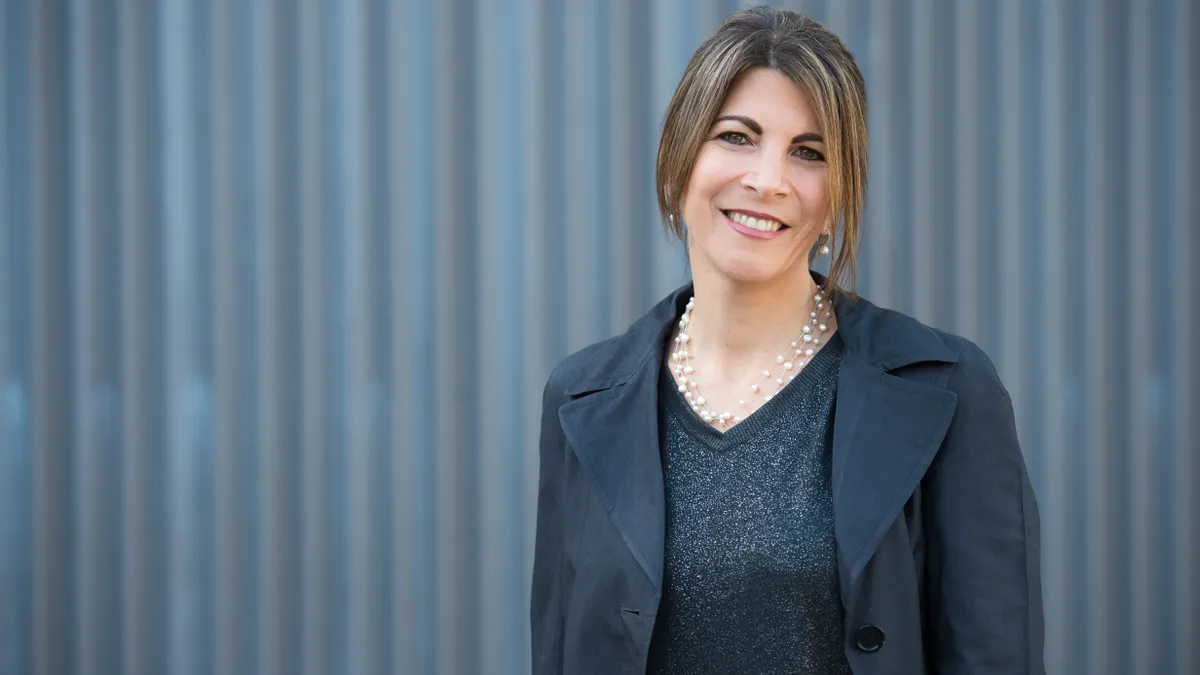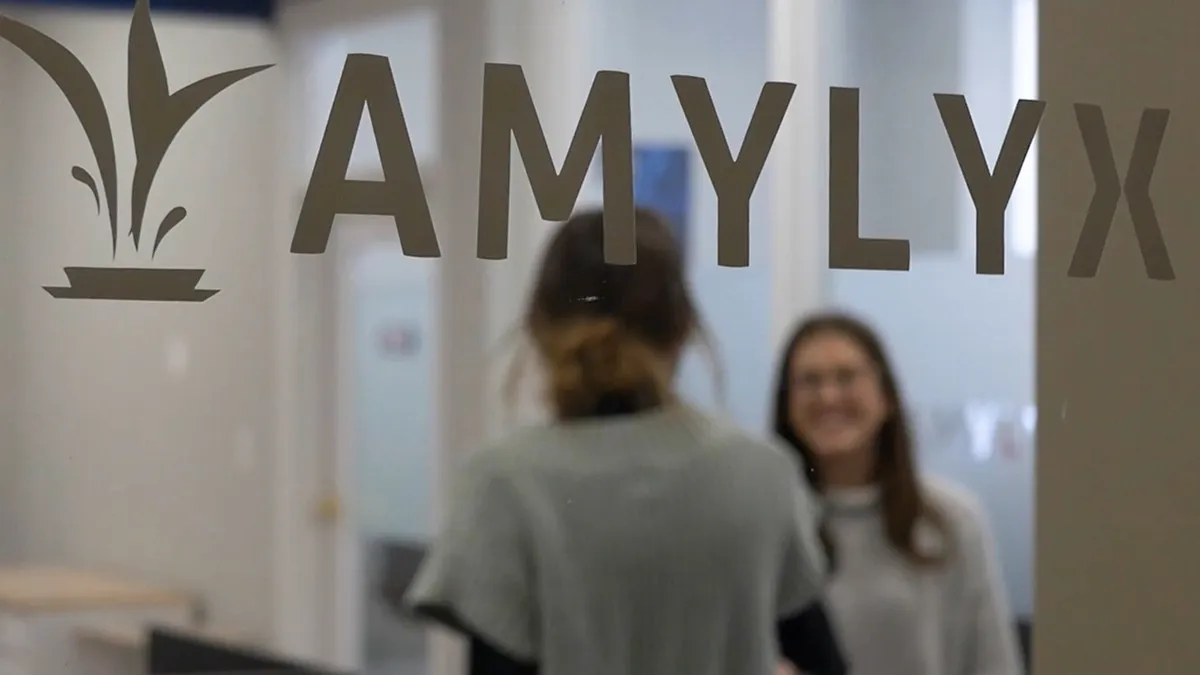Gilly Regev is first and foremost a scientist — and that’s true whether she’s applying her knowledge to wine or to the molecule nitric oxide.
During her time as a professional sommelier, it wasn’t enough for her to simply memorize tasting notes and fast facts about vineyards for the wines she tasted, recommended and discussed. Instead, she embraced her passion for the science behind the wine.
“To communicate with people, you have to talk a lot about the qualities of the wine, the chemistry behind the wine,” Regev says “So the more you understand and the more passionate you are, you can do the delivery better.”
Now the Israeli native is co-founder and CEO of the Vancouver-based SaNOtize Research and Development Corp., which is developing therapies that use nitric oxide as an anti-infective against fungi, bacteria and viruses — including major targets such as COVID-19 and influenza. And she still relies on the same passion for science she tapped into as a sommelier.
“It translates to being the CEO of a pharma company where the more I understand and am passionate about how I’m going to help people get better, then I can deliver that better,” she says.
Embracing ‘strong science’
While some students wait tables or work retail while they earn their degrees, Regev worked as a sommelier while she completed her Ph.D. in biochemistry at the Hebrew University of Jerusalem. According to Regev, the two fields aren’t all that different.
“It’s all about strong science … [and] asking the right questions and showing that the data is there,” she says. “There is a lot of strong science behind wine making. Same as there’s a lot of strong science behind how nitric oxide can treat infections. So as long as you know to ask the right questions you will get to the answer.”
Regev is now applying that “strong science” to her work with nitric oxide, which is a molecule that “exists naturally in every system in our body" with antimicrobial properties, Regev says.
“SaNOtize is an innovative, therapeutic company that developed a new medical use and a new delivery system for a well-studied natural molecule,” she says.
SaNOtize’s proprietary liquid formulation (dubbed “Nitric Oxide Releasing Solution” or NORS) releases nitric oxide gas in therapeutic concentrations. Its antimicrobial nasal spray, which has been shown to reduce the viral load of COVID-19 in the nose and even prevent new infections, is approved in several countries. Now, SaNOtize has an end-of-phase 2 meeting with the FDA next month, which will include exploring NORS as a combined COVID and flu treatment.
According to Regev, if approved by the FDA, it would be the first nasal spray therapy for early treatment and prevention of COVID-19 and the flu.
Although there are approved antiviral and monoclonal antibodies for COVID-19 treatment, Regev says NONS is different because it works in the inner surface of the nose, rather than the bloodstream, which makes it more efficient at reducing viral load and achieving a negative test. Regev notes that the delivery system also makes it more affordable, accessible and easy to use.
"There is a lot of strong science behind wine making. Same as there’s a lot of strong science behind how nitric oxide can treat infections."

Gilly Regev
CEO of SaNOtize Research and Development Corp.
In India, it received an emergency use approval by the Central Drugs Standard Control Organization for treatment of high-risk adult patients with COVID-19 who have a risk of progression of the disease. In addition, SaNOtize’s nasal spray is approved for use as a medical device in Thailand and Indonesia and with emergency use authorization in Israel and Bahrain, and is approved for sale in Singapore, Nepal and the EU.
The company also has an ongoing phase 3 trial, approved by Health Canada with sites in Canada and Sri Lanka to test the product for COVID-19 prevention; 1,400 participants are already enrolled with a goal of up to 4,000 participants.
“Nitric oxide has failed in the past and we have found a way to actually get it to work. It’s getting the right dose to the right places at the right time,” Regev says.
She says that although inhaled nitric oxide is approved to treat "blue babies,” who are in respiratory distress, it has yet to be approved in the U.S. as an antimicrobial or anti-infective therapy, despite several companies attempting to create delivery methods for it.
“We’ve figured out how we can create nitric oxide at the right dose that is safe and effective … there are lots of different delivery methods that are all based on the same core technology that we have patented,” she says.
For instance, the company is currently also studying a nitric oxide-releasing sinus irrigation as a treatment for chronic sinusitis and a nitric oxide-releasing footbath as a treatment for diabetic foot ulcers. Regev says NORS can also be adapted to create nitric oxide releasing gels or creams.
The art of science
Communicating the science behind her passions has helped Regev throughout her career, whether she’s talking about wine to a table full of diners or nitric oxide to a room full of investors.
This approach has been an asset as she’s navigated a male-dominated industry, too. Regev has experienced countless instances of being underestimated, asked out for drinks, or talked down to during what should have been professional encounters.
In particular, she says she has a vivid memory of sitting in a room full of men at a pitch competition in New York City. She was happy with how she delivered her pitch. But afterward, one of the male investors came up to her, and instead of offering his congratulations on a job well done, he said, “Well, I think you won the shoe competition.”
“I took a big breath, I smiled, I walked away,” she says. But she made sure to catch up with him again after she was announced as the competition’s winner.
“I found him, and I said, well, not only did I win the pitch competition, but I have a great pair of shoes to show you,” she says.
Focusing on the science — and not letting anyone stand in her way — has helped Regev push past incidents like these and keep going, through earning her doctorate, to raising two boys as single mother, to heading up an innovative biotech company, to encouraging and mentoring other women in the life sciences industry.
She’s also learned that having an artistic mind helps, too.
“I love creating,” Regev says, and her creativity is woven through everything she does. She might be developing a nitric oxide-delivery platform or making sculpted birthday and wedding cakes for her family, but the art always informs the science and vice versa.
“I believe that art is everywhere and being able to think out of the box is what brought me to where I am today. I think having this artistic side allows you to think out of the box sometimes,” she says.
It’s also allowed her to continue to create new and innovative ways to help people. As a Ph.D. student, she knew that she wouldn’t be satisfied with a life in the lab. She wanted to see the fruits of her creative labors.
Now she is.
“We’re doing a lot of good for a lot of people and saving people’s lives,” she says.
















